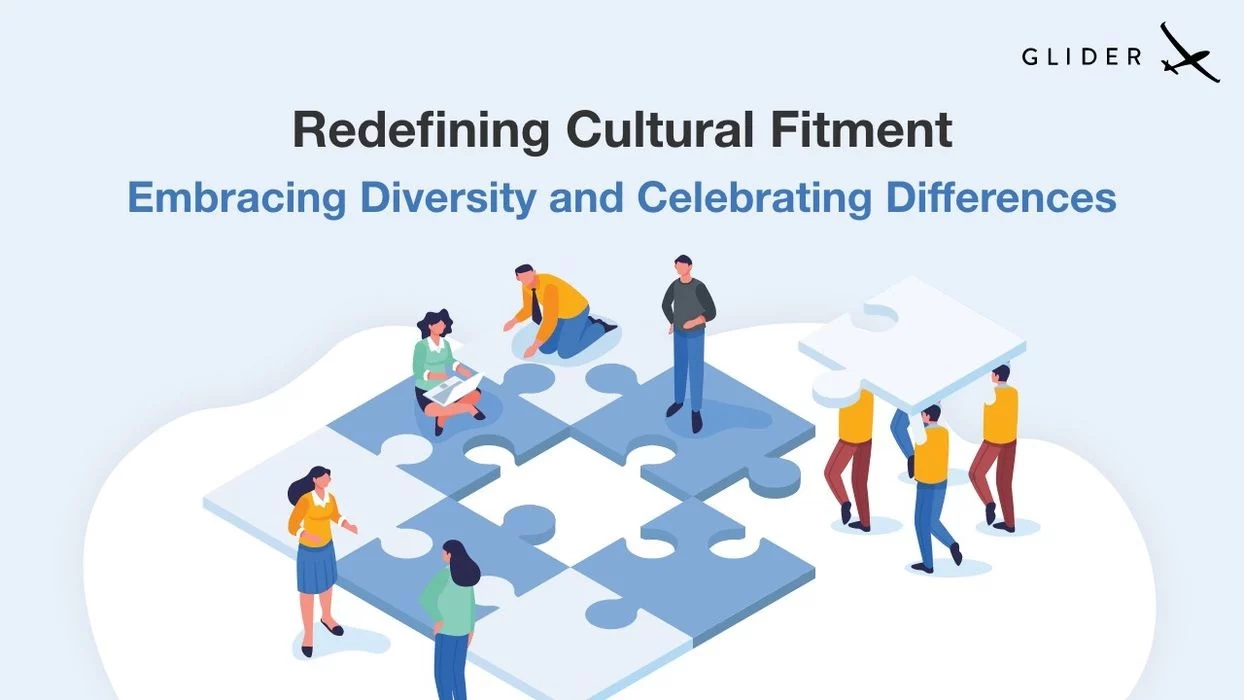The definition of cultural fitment is discreet, based on a company’s ideologies and principles. In many cases, companies look for employees who match their requirements and have the qualities to “blend in” with the prevalent culture.
“Maintaining the culture that you’ve built for your company is the goal of most business owners. Even before they started building their business, it is clear to them what culture they want to have in their workplace. Some company wants to retain and maintain their company culture and find employees that will fit in the standards of the company. While some want employees that will offer something new and will affect the company positively.” – says Jacob Martinez, Founder at SwiftClean.
There is a misconception that the employees who share the same beliefs or have the same taste as the employer are the most culturally fit ones.
But is it so?
Patty McCord, former CTO of Netflix says,
“What most people mean by culture fit is hiring people they’d like to have a beer with. You end up with this big, homogenous culture where everybody looks alike, everybody thinks alike, and everybody likes drinking beer at 3 o’clock in the afternoon with the bros.”
It’s about time employers asked themselves what cultural fitment meant. Does it mean to hire a “flock of sheep” who nod to everything the employer says, or, is it something else?
This blog will clear out every misinterpretation that revolves around cultural fitment and bring to light the actual meaning of cultural fitment.
Cultural Fitment – The Definition
Theoretically, cultural fitment is the parameter to check whether the employee has the traits to work within the company rules and regulations and is gullible enough to carry on with the prevailing values of the company. According to old-school employers, culturally fit employees are those who think alike, act alike, and don’t question the “system”.
Kirsta Anderson of Korn Ferry says,
“What most interviewers are looking for and acting on is more of an intuitive sense of, ‘Would I get along with this person?’ and that often isn’t very reliable.”
However, this mindset regarding cultural fitment has changed over the years as the need for diversification increased. It is not about finding the most culturally aligned employee but about finding those who share the same values as the company and have the ability to bring something different to the table rather than just following up.
Lindsay Evans of Chatham Financial says,
“In using culture fit, it’s critical to define and create shared meaning among interviewers of what this “fit” means. A lack of consensus renders “culture fit” at risk of being misused in the candidate evaluation. It can become code for “this person isn’t like me.” The benefits of diversity within teams are proven, and exclusionary hiring decisions can subtly undermine a firm’s diversity objectives.”
Subjective Cultural Fitment
Cultural fitment has become a measurement used by hiring managers to recruit employees who seem to adhere to the company norms and environment. The term ‘culturally fit’ has become the sole perpetrator of prejudice against diverse talent.
In many companies, recruiters use phrases such as “I didn’t like him.” or “He won’t be the right fit.”, which designates the subjective approach towards cultural fitment. Rather than hiring for talent with the capability of enhancing the company’s production, hiring managers of various companies have made up eligibility criteria based on cultural fitment. This subjective mindset of hiring managers has made the workforce in various companies homogenous with no room for diversity and change.
The knack for achieving a culturally fit workplace has resulted in the collapse of many companies. Finding employees who “click” with the prevailing culture has made the process subjective and biased.
According to the U.S. Census Bureau’s Annual Survey of Entrepreneurs, 89% of 5.6 million U.S companies had fewer than 20 employees. This shows the value of subjective cultural fitment.
Does Cultural Fitment sustain Bias?
Cultural fitment is the alignment of employee’s behavior and values to the mission and vision of the company. In general, this cultural fitment is controlled by what the company is all about. Its’ perspective on certain matters and on how it is presented to the market which then, the management follows accordingly.
This phenomenon somewhat perpetuates bias or hampers diversity because, during decision-making, the company tends to choose candidates they believe have the same beliefs. However, this topic is subject to a number of different views.
Making sure that employees get the concept of cultural fitment helps them in becoming team players. They are more likely to collaborate and work together as a team thinking of the well being of the company than believing and practicing any bias that they believe in.
“Culture fit can be used as a tool to increase diversity or hurt it
depending on how it is used.” – says Fletcher Wimbush, CEO of The Hire Talent.
What needs to be done?
Lindsay Evans thinks that cultural fitment should not be completely eliminated from the recruitment process. She says that hiring managers must prohibit themselves from misinterpreting the term “cultural fitment” as per their motive and be inclusive and anti-discriminatory.
An employee’s character, personality, mentality, and values should be examined by the hiring managers before recruiting. But it should be based on the sole purpose of fitting with the company culture. Rather they should assess the positive and negative qualities of the employees and measure the accountability and comprehensive attitude of the employees.
Companies should not just hire the employee who whisks up with the culture but should hire someone who “adds” to the culture. Many consultants believe that employers should go for “cultural add” and not for “cultural fit”.
This phenomenon would let companies explore the diverse employees and increase the productivity of the company. Hiring diverse employees opens up the ways for “out-of-the-box” thinking and also lets the company thrive on the different ideologies, values, and mentalities.
According to Lars Schmidt, various companies have already started to drop the idea of cultural fitment and are focusing on diversity and inclusion as the basis for hiring. Large companies such as Facebook, Pandora are already on the path of eradicating cultural fitment and embracing diversity.
Personality Matters
The behavior of a person determines the susceptibility regarding the workplace culture. The personality of the employee is considered as one of the most important factors that decide whether that employee would be a good fit or not. According to psychologist Adrian Furnham,
“A fit is where there is congruence between the norms and values of the organization and those of the person.”
Every person has positive and negative personality traits. The Hogan Development Survey (HDS), describes that assessment of the dark traits of personality helps in determining the productivity and stress-maintenance capability of an employee. It says that there is a very thin margin between the positive side and the negative side of a person. A person may seem normal but act differently when triggered. Dark traits may lie dormant in a person’s mind but over-exposure to stress may generate the innermost traits of negativity leading to work derailment and damage.
According to Graziadio Business Review,
“The optimum degree of cultural match depends on one’s psychological profile and, ultimately, on personal preference.”
Understanding of individual personality can increase the chances of tolerance and help in maintaining a healthy workplace culture. An employee may have the required skills but his acceptance towards others and his mental shortcomings depending on stress are what matter the most when it comes to cultural fitment. Skills may be gained but personality comes from within and this is what drives the productivity of an organization.
The Perfect Employee
Hiring managers would say that an employee who matches the job requirements and who will get along with the prevalent culture is the perfect employee.
But that may not be the case every time.
A perfect employee is someone good at dealing with different personalities and can fit with a diverse group of individuals. An individual can be considered perfect if he is open-minded and doesn’t get rattled by differences in opinions, is open to suggestions but has the intelligence to make the right choice.
Perfect may sound a little far stretched but an employee who has the caliber and the capabilities to manage any situation is surely the most ideal one.



